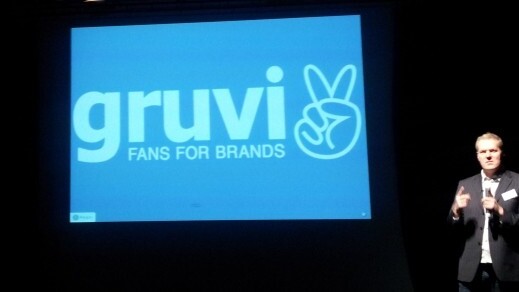
The Next Web has been on-hand to get an early glimpse of the plethora of startups emerging from accelerator programmes across the UK and Europe.
In the UK, there are a number of hotspots springing up around the country, with the likes of Cambridge’s Springboard and Birmingham’s Oxygen Accelerator launching some cool new startups, and two weeks ago Ignite100 launched 9 new startups and lit up the UK’s Northeast startup scene.
This week, it was Startup Bootcamp’s turn, and we were there to see 12 startups from across Europe as they pitched for investment.
Back in December we reported that Startup Bootcamp is currently expanding, with the launch of a new base in Amsterdam, adding to its existing presence in Copenhagen, Dublin and Madrid. Berlin and London are being added to its accelerator network in 2012.
Following the TechStars model, Startup Bootcamp selects a group of early-stage Internet companies, gives them up to €17,000 ($22,100) and puts them through an intense 3-month development and mentoring program in return for a small stake in each business, before presenting them to investors.
“Incubators are for premature babies, to keep them safe and warm from the outside world,” said Alex Farcet, the co-founder and Managing Director of Startup Bootcamp. “Accelerators, which is what we are, are rocket-boosters. We launch startups into space, and then hope they stay in orbit. The secret sauce of the startupbootcamp is the mentor-base. When I launched the programme in 2010, I spent six months headhunting the very best mentors I could find.”
Almost two years on, Startup Bootcamp is going from strength to strength. Over three hours earlier this week, twelve startups took to the stage to pitch their products in the hope of gleaning the necessary funds to advance to the next level. And here they are.
Archify: Search beyond Google (Austria)
“Have you ever had the problem of finding something again you have already seen on Facebook or elsewhere on the Internet?”, asks Gerald Bäck, co-founder of Archify. A few vague nods of agreement flickered around the audience as Gerald explained some of the difficulties in remembering where you’ve read a piece of content online.
Archify is a browser plugin which, once installed, saves everything online that you browse – including every update from you and your friends on your social streams. If you search for something on Google, a little overlay will appear telling you that there are also results in Archify.
Archify is like your own personal browsing archive. In addition to indexing all the content you’ve viewed, Archify also takes a screenshot of each page you visit, allowing you to not only find content, but view it exactly the way it looked on the day you visited the page.
It’s currently in private beta, and we’ll be revisiting this one again soon.
AutoUncle: Find used car deals (Denmark)
AutoUncle is like a flight-comparison website, but for used cars. It garners data on the second-hand car market to gain insight, then visualizes the information to allow people to make buying decisions.
AutoUncle gathers and sorts the vast array of online car advertisements and evaluates the price of each car.
The prices are estimated using an algorithmic score that automatically scans every car ad for up to 100 different pieces of information which may affect the price. It’s already operating in Denmark, but it plans to expand further into Europe.
BalconyTV: MTV for the balcony generation (Ireland)
BalconyTV is a weird but wonderful concept devoted to the idea of music being performed on balconies. Yup, balconies.
It’s a startup focused on producing video content, and it first sprung up on a veranda in Dublin, Ireland. However, the idea is catching on, and volunteers on balconies from around the world are now filming performances and sharing them with the world via a centralized website, clocking up over 20 million views of over 5000 videos in the process.
We first covered these guys in a feature from last October, and this is certainly one startup to watch. Think of it as a sort of MTV for the balcony-generation. If that makes sense.
Eyeproof: Eye-tracking for user panels (Denmark)
Eyeproof was an interesting one for sure, as it hints at the direction we’re going with the Web.
In a nutshell, Eyeproof provides “large-scale distributed eye-tracking data collection.” It is a cloud-based analysis tool and its software enables market researchers to manage, collect, and analyze real eye-tracking data from consumer panels.
Eyeproof’s eye-tracking technology taps inexpensive off-the-shelf cameras, making it cheaper to set up larger-scale user panels.
Fanarchy: Democracy platform for fan engagement (Israel)
“The biggest opportunity in the sports industry lies in providing exciting, high-value opportunities for sports fans,” says Fanarchy co-founder Nick Elsom.
Fanarchy is to launch early in 2012, and it sells itself as a “democracy platform” which aims to increase clubs’ engagement with their global fan-base by allowing fans to participate in clubs’ decisions.
So, for sports teams, Fanarchy is striving to increase fan loyalty and monetize it, while garnering valuable data for clubs looking to make decisions. The example Elsom cited was one where a football club may be looking to launch a redesigned club crest, and it could tap its fans’ to feed in to the process.
Gruvi: Social movie marketing (UK)
Gruvi is a marketing and technology company that works with big entertainment brands on their Facebook campaigns. It’s already working with Sony Pictures, Universal Studios, UIP, SF and Warner (Nordics), and it provides app-development, community-management and ad-buying services.
The company is making ripples in the UK, Germany and Denmark, and with the help of its Facebook application, Gruvi is looking to help the major movie studios across Europe acquire more fans early on in the campaign cycle.
PlayerDuel: Making games ‘competitive’ (Israel)
PlayerDuel is seeking to add a competitive experience to games. With PlayerDuel integrated, players can compete against their friends or any other player from around the world.
Developers download the PlayerDuel software-developer kit (SDK) for iOS, and the platform can then be integrated with their games. PlayerDuel sells itself as the “first competition platform for games,” and seeks to alleviate the boredom of solo game-playing.
http://youtu.be/vUsbCkdEM8M
Mobitto: Targetted offers via mobile phones (Portugal)
Mobitto’s app is already available on iPhone and Android. The startup is setting out to change the way people consume goods and services forever, letting consumers check offers on a map, by category or by browsing through active or used deals.
It lets users see what deals are nearby, identified by the type of offer, and users can see how much time is left on the deal.
Myrio: In-store personal digital shopping assistant (Croatia)
Myrio helps you shop. For clothes. The platform has already been piloted at a Diesel store in Croatia, and it seeks to helps shoppers buy the right clothes, including size, colour and design.
Myrio’s software offers matching suggestions for combinations of outfits and accessories providing a regular update of said items, combinations and quantities. It offers a combination of in-store, mobile and Web applications for clothing retailers.
Roozz: Don’t buy software, rent it (Denmark)
Roozz was an interesting one for sure, in that it’s seeking to transform the way people acquire software.
The idea behind Roozz is that buying (often expensive) software in an age of cheap or free Web apps can be unappealing. So, Roozz lets users rent software instead.
We first covered this startup last November: Roozz could transform desktop software by letting you rent and run it in your browser.
TrialBee: Matching clinical trials and patients (Sweden)
TrialBee is a platform for pairing clinical trials with willing participants, with a view towards speeding up the development of new drugs.
Big pharmaceutical companies still use pretty outdated (manual!) means to recruit for drug trials, and it can cost a lot of money. According to TrialBee, the pharma industry loses billions of dollars each year due to delays in drug trials, which subsequently effects when a drug can go to market.
WebCrumbz: Web apps made easy (Romania)
WebCrumbz is a tool for Web app developers, letting users create, design, manage and distribute their mobile web apps, giving them a ‘native’ look & feel.
The company was founded in 2010, and the platform is compatible with iOS (iPod, iPhone, iPad), Android and BlackBerry PlayBook.
Get the TNW newsletter
Get the most important tech news in your inbox each week.
















